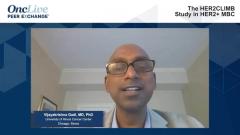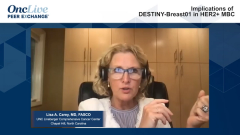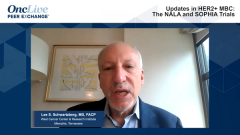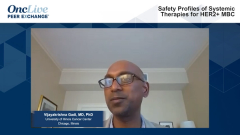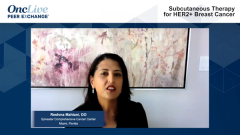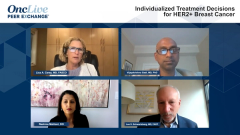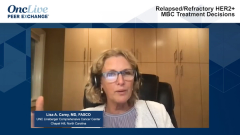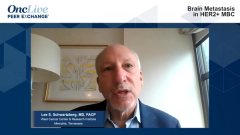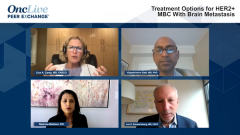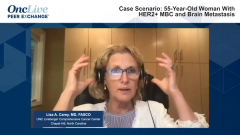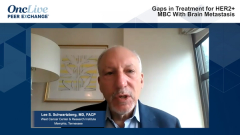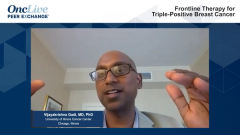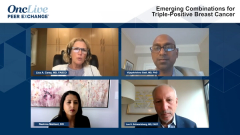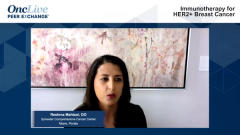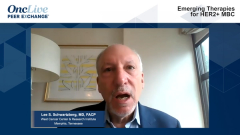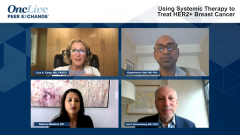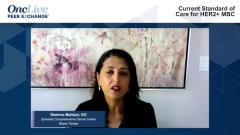
Immunotherapy for HER2+ Breast Cancer
The rationale for incorporating checkpoint inhibitors into treatment regimens for HER2-positive breast cancer.
Episodes in this series

Lisa A. Carey, MD, FASCO: There have been a couple of studies that incorporated an immune checkpoint inhibitor in this setting. Who wants to comment? They weren’t necessarily ringing endorsements for this approach, but there was a hint. Anybody want to comment on the PANACEA and KATE2 clinical trials?
Vijayakrishna Gadi, MD, PhD: We had KATE2 open at our institution. Again, I happen to have a patient who did well, so I have this positive impression. But the data, at the end of the day, weren’t compelling in terms of pushing the needle forward. I think there are some of the same challenges we’re seeing more broadly in breast cancer, and triple-negative as well, such as who’s going to respond to a checkpoint inhibitor, and what defines a responder in terms of PD-1, PD-L1? Is it the immune infiltrate? There are always these exploratory analyses that come out and say, “Oh, you must have this particular T cell in the periphery, and then it will work.” Then the next study says, “It’s this thing.” There’s so much heterogeneity in terms of what’s going on in the tumor that we haven’t been able to make those connections. So yes, I’m enthusiastic in the sense that we’re seeing some signals, but we’re not seeing the home runs like we saw in lung cancer, for example, and unfortunately, this particular breast disease of HER2-positivity isn’t any different.
Reshma Mahtani, DO: I think there’s been a lot of enthusiasm regarding checkpoint inhibitors in triple-negative disease because of the high unmet need. But I think many of us forget that it may be appropriate to look at these therapies in HER2-positive disease as well, and our dual antibody therapies work by inducing an immune response. Again, as we’re sharing anecdotes, I’ll tell you I had a patient with HER2-positive disease—chest wall, skin lesions—who was treated on a trial with a checkpoint inhibitor and had an amazing response. She had rapid clearing of her entire chest wall on a checkpoint inhibitor, as part of a clinical trial, and it was dramatic to see. But I share V.K.’s view, that I think we have more work to do to define biomarkers for who’s going to respond, especially in HER2-positive disease with checkpoint inhibitors.
Transcript Edited for Clarity


